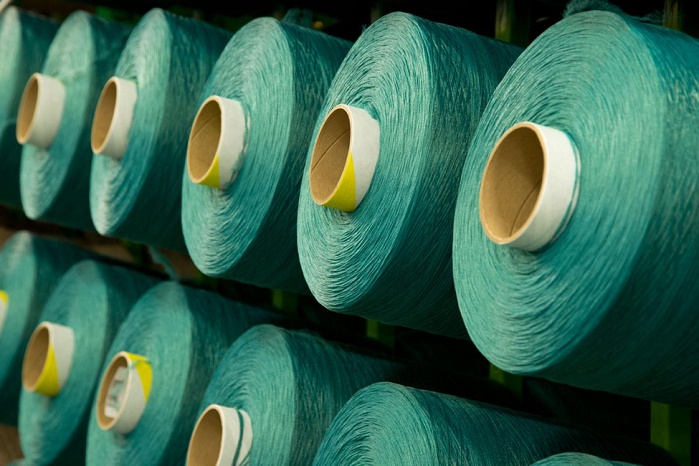
Start-up uses waste to create world’s first emissions-free bio-nylon
Bioenterprise Canada and partners support OzoneBio’s path to commercialization
By Lilian Schaer
A Canadian green tech company has developed a technology to create the world’s first emissions-free nylon 66 – and they’re upcycling waste from the pulp and paper industry to do so. It’s a remarkable breakthrough from start-up OzoneBio that has game-changer potential in the fight against climate change.
That’s because nylon 66 is a plastic strengthener that is found in everything from car parts and food packaging to clothing and shoes and its main building block is a compound called adipic acid. The petrochemical refineries that manufacture adipic acid also produce high volumes of nitrous oxide emissions, a greenhouse gas that is 300 times worse for the atmosphere than carbon dioxide.
OzoneBio’s co-founders, Khorcheska Batyrova and Anna Khusnutdinova, studied together and after earning their PhDs reconnected at the University of Toronto where both ended up with postdoctoral fellowships.
“The world can’t stop using this polymer because it is one of the most resilient polymers out there, but we have discovered a way to make zero-emissions adipic acid using biocatalysts and enzymes,” says Khorcheska, adding that the process she and Anna have developed is also much cheaper and simpler than conventional production.
Their green technology is fueled by low-cost treated wood waste – by-products from the pulp and paper industry that are considered toxic waste and therefore hard to dispose of – and novel, natural enzymes they call “zombie cells”.
“To stabilize our novel enzymes, we leave them inside the cells where they are naturally stable,” Khorcheska explains. “We don’t keep the cells alive, nor do we let them die; we put them into an intermediate state and call them zombie cells.”
The result of their bio-based process, which has a 98% conversion efficiency, is adipic acid powder. They’re now optimizing and scaling their technology and have attracted interest from both multinational chemical companies and major sportswear brands.
Last year, OzoneBio was accepted into a green tech accelerator in California’s Silicon Valley called IndieBio. This led to an introduction to Paul Richards from Innovacorp, a Nova Scotia-based venture capital firm that is also a partner in Bioenterprise, Canada’s Food & Agri-Tech Engine.
It was Richards who helped OzoneBio secure much-needed lab space at Cape Breton’s Verschuren Centre, another Engine partner, which is what brought the young start-up to Nova Scotia and has been invaluable in their growth.
“Innovacorp and the Verschuren Centre have been very helpful and supportive, and provided us the facility we needed in order to deliver our technical milestones for successful graduation from one of the most intense bio-programs in Silicon Valley, Indie Bio SF11,” says Khorcheska.
Richards also introduced OzoneBio to the team at Bioenterprise Canada, where bi-weekly meetings with a mentor have yielded valuable business advice, suggestions on funding opportunities and introductions to potential strategic partners like Emissions Reductions Alberta, WinPak, Total Energies Corbon and the Institute for Chemicals and Fuels from Alternative Resources.
As Canada’s Food & Agri-Tech Engine, Bioenterprise Canada brings more than 15 years of industry experience and a national and international network of research institutions, academia, mentors and experts, funders and investors, government, and industry partners to help small and medium-sized businesses in the agri-food sector nationwide connect, innovate, and grow.
To learn more about the Engine or to become a member or partner, visit https://bioenterprise.ca or contact Carla Berquó, carla.berquo@bioenterprise.ca or 519.821.2960 ext. 205 / 1.866.464.4524.
-30-
Not yet following us on social media? Follow Bioenterprise on Twitter, LinkedIn, TikTok, and subscribe to our YouTube channel for industry news, events, and business development opportunities.